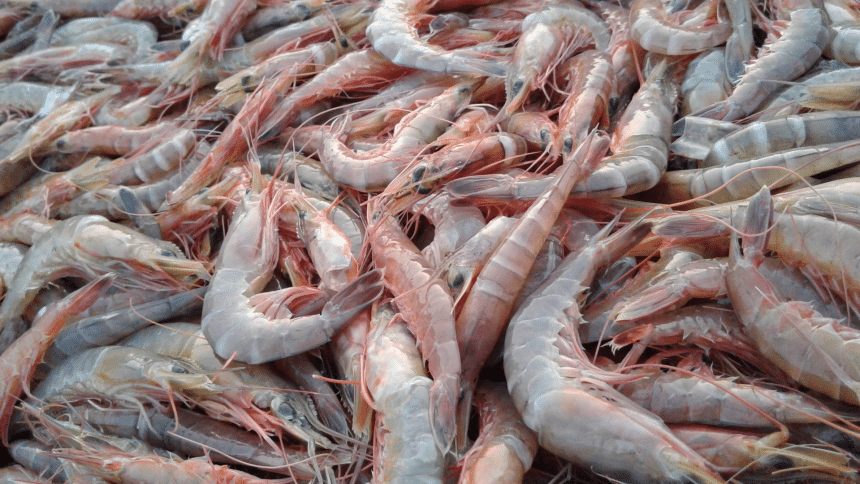Seafood scandals are not just confined to Mississippi’s coast, as a new study alleges that more than 65% of Jackson restaurants are lying about the origins of the shrimp they serve to customers.
SeaD Consulting, an organization commissioned by the Southern Shrimp Alliance that specializes in genetic testing of seafood, concluded an investigation that uncovered an overwhelming majority of restaurants were advertising their shrimp as locally caught, when in fact, it was imported from a foreign country.
From June 23-26, just before a new state law requiring businesses to be transparent in their seafood labeling went into effect, SeaD conducted scientific genetic testing on shrimp dishes served at 44 seafood restaurants across the Jackson metro area. Using its patented genetic testing technology, the organization identified whether the shrimp being served was genuine U.S. wild-caught shrimp or imported shrimp.
It was discovered that only 14 of the 44 restaurants tested were found to be serving authentic domestic wild-caught shrimp, as either implied or explicitly advertised. The remaining 30 restaurants were found to be serving imported shrimp instead of wild-caught.
RELATED: Investigation finds over 80% of ‘Gulf shrimp’ sold on Mississippi coast is imported
SeaD’s investigation concluded that 18 dishes tested appeared to be “explicitly inauthentic” based on menu or staff claims, while 10 were determined to be implicitly inauthentic based on each restaurant’s decor, location, or branding. Two restaurants are reported to have openly admitted to serving imported shrimp despite the fact that their advertising appeared to imply that the shrimp their restaurants served were local or wild-caught.
These restaurants reportedly had no notices or signs posted indicating that they served imported shrimp at the time the sample was obtained.
“Mississippians deserve to know what they’re being served — especially in a region where wild-caught Gulf shrimp is a source of pride and economic livelihood,” Erin Williams, Co-Founder and COO of SeaD Consulting, said. “We are hopeful that new restaurant labeling laws will turn the tide and bring greater honesty to the table.”
Though SeaD did not identify the 30 alleged bad actors, it did highlight the restaurants that were serving local fare:
-
- AHA Crawfish Bistro – 1055 U.S. 49 Frontage Rd, Richland, MS 39218
- Berry’s Seafood and Catfish House – 2942 US 49, Florence, MS 39073
- DA SHAK – 5752 Terry Rd, Ste A1, Byram, MS 39272
- Dragos – 1005 E County Line Rd, Jackson, MS 39211
- Hal + Mal’s – 200 Commerce St B, Jackson, MS 39201
- Half Shell Oyster House – 115 Laurel Park Cove, Suite 105, Flowood, MS 39232
- McB’s Bar & Grill – 815 Lake Harbour Dr, Ridgeland, MS 39157
- Primos Café (Madison) – 201 Baptist Dr, Madison, MS 39110
- Shaggy’s on the Rez – 1733 Spillway Rd, Brandon, MS 39047
- Season’s Crawfish – 238 Wisenberger Road, Madison, MS 39110
- Shucker’s Oyster Bar – 116 Conestoga Rd, Ridgeland, MS 39157
- Table 100 – 100 Ridge Way, Flowood, MS 39232
- The Mayflower Cafe – 123 W Capitol St, Jackson, MS 39201
- Twisted Turnip – 166 Calhoun Station Pkwy, Madison, MS 39110
“This testing was conducted just before Mississippi’s new restaurant seafood labeling law went into effect on July 1, 2025,” said Leann Bosarge, board member of the Southern Shrimp Alliance and head of Development for Bosarge Boats in Pascagoula. “While the current results show a serious gap in truthfulness, we are hopeful that upon retesting, the new law will drive real improvements in transparency and accountability.”
Imported shrimp, often raised in less regulated and sometimes unknown conditions abroad, is not subject to the same quality or labor standards as U.S. wild-caught shrimp, per officials. Mislabeling also threatens the livelihoods of domestic shrimpers.
The Southern Shrimp Alliance, an organization of shrimp fishermen, shrimp processors, and other members of the domestic industry, encourages consumers to ask restaurants where their shrimp comes from and request proof. Folks are instructed to look for the label “wild-caught U.S.” and ask to see the product packaging.
Officials are also hopeful the new state law will result in more transparency in seafood labeling, requiring those serving farmed fare imported from other countries as such.








